Paul Kent: Ben Ikin is the best choice for next Brisbane Broncos CEO
The arrival of a second team in Brisbane will force the Broncos to finally grow up and Ben Ikin is better placed to lead the club than just about anybody you can think of, writes Paul Kent.
Sport
Don't miss out on the headlines from Sport. Followed categories will be added to My News.
Job references are usually fairly stiff affairs.
“To Whom It May Concern,” they usually begin, with an equally stiff opening sentence that goes along the lines of, “I have known Ben Ikin for eight years …” before, somewhere early in the narrative, you drop in the obligatory: “Ben would make an ideal chief executive of the Brisbane Broncos …”
For the casual observers of Ikin’s work on NRL360 over the past eight years such stiff sentences, dressed in formality, might be a suitable fit if anybody was to ever, say, write a real job reference for him to become the Broncos next chief executive, where it just so happens the job will soon be available.
But it would be an injustice to tar him with such a simple brush.
I have known Ikin for much longer than these past eight years, though not nearly as well, and it takes no great strain to remember back to less formal times he wasn’t nearly this stiff and was, indeed, more widely regarded as his football club’s party planner.
Trips away, a pub crawl on the bye weekend, the fun at the soda fountain used to be his domain.
Kayo is your ticket to the 2020 NRL Telstra Premiership. Every game of every round Live & On-Demand with no-ad breaks during play. New to Kayo? Get your 14-day free trial & start streaming instantly >
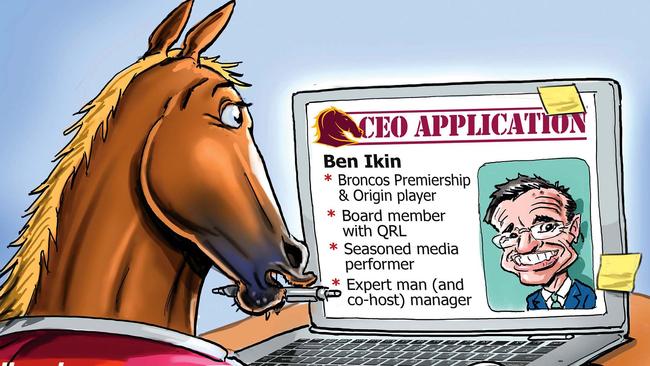
Last week he sat with former teammates at Tommy Searle’s funeral, having not had a beer for 10 years or more, as they reminisced about Tommy and, among other things, Tommy’s love for a schooner of Tooheys New, and in recognition of what the man had done for him Ikin downed a schooner of New.
Searle was the Gold Coast boss who signed him to his first contract back in the 1990s. The Seagulls, as they were known, got him a job picking up glasses at the Coolangatta Hotel, where they would go after games.
He started the 1995 season an 84kg centre off the bench for reserve grade and the night he made his first grade debut the team had a win and headed back to the Coolly to celebrate.
“What are you doing?” his boss asked.
Was it a trick question? He was celebrating with the boys.
“Not tonight you aren’t,” his boss said. “You’re rostered on.”
He spent the rest of the night picking up glasses, many of them kindly stacked by his teammates.
What happens next needs no introduction here.
Three games into his first grade career he got picked for Queensland, turning up at camp with training gear and his pyjamas.
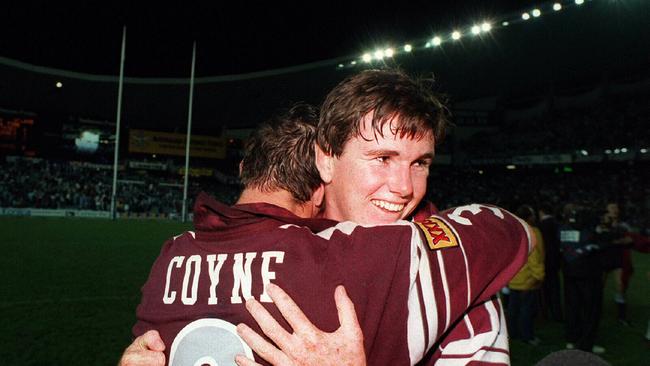
Chris Close had to take him to the local menswear to get his disco clothes. He soon got a taste for that and went from being a professional footballer to a professional celebrator.
Ikin loved camp like few did, or even could.
By the final Origin his fat legs bulged out from his shorts, by now under such tremendous pressure that it is testimony that they were able to, as the Maroons themselves proved that entire series, stand up under the strain.
He finished the season at 98kg.
He retired early, at 27, after his knee crumpled under him one last time and it would have been understandable if he went the way of many prematurely retired players and either disappeared altogether or, the favoured route, popped up as an assistant coach somewhere.
But what has happened instead is one of the narratives missing far too often in rugby league.
He got a job working in the commercial department at the Gold Coast Titans, left the game to work in construction, came back to the game through a job in the media, later sat on the North Queensland Cowboys board, broadened his knowledge by reading several good books, and now sits on the Queensland Rugby League board.
He has seen the game from the bottom up and has seen enough to know what makes clubs successful and profitable.
This is the way it used to be done in the game, way back before the game got professional and everybody thought they needed to bring in professional people to run it.
It reached a state of small crisis some years back when the ARL Commission formed and those charged with making the big decisions fell into this idea that rugby league needed to bring business people in to show everybody how to run the game like a business.
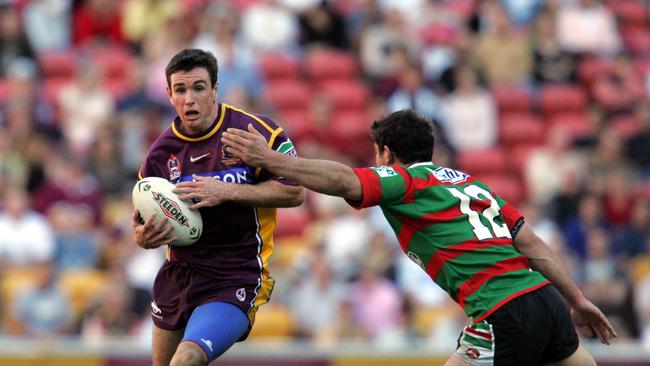
Now, not even 10 years later and after the business professionals spent tens of millions of dollars with nothing much at all to show for it, the best joints are being run the way they should always have been, by people who know the business of rugby league.
It is why the Broncos should be rifling through their mail right now hoping to land on Ikin’s application in the pile.
The Broncos used to be the big brand in the NRL.
In recent years the club has behaved like its place at the top is a birthright, though, and not hard work, and poor decision has followed poor decision to now, where it now appears the club has totally lost the formula for what success looks like.
The Broncos are heading towards troubled times. Few in Brisbane have begun to comprehend how tough the road actually looks.
Next week the club holds its annual general meeting where it is expected to a deep drop in profit, if not a loss, amid hostile questions about the team’s lack of success, the terms of coach Anthony Seibold’s contract, and a second team in Brisbane.
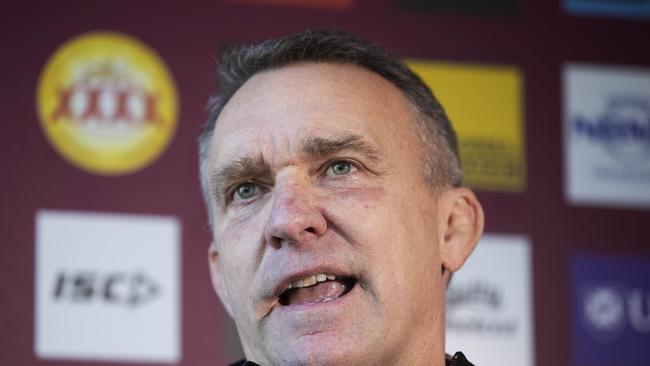
For years the Broncos had Brisbane to itself.
A city with two million people, big crowds every home game, all those sponsorships and corporate deals to itself.
The Broncos had drawing power greater than any club. Kind of like the Roosters now, players really did go there for less, tempted by the strong chance of a premiership.
The COVID-19 pandemic has smashed the Broncos, though. The misconception around town is that the smaller clubs like Wests Tigers and Manly were in most trouble with COVID but the reality is the big clubs, mostly Brisbane and Melbourne, and who budgeted for big crowds and plenty of sponsorship dollars, are most vulnerable.
At the same time ARL Commission chairman Peter V’landys has indicated the NRL plans to expand with a 17th team in Brisbane within the next broadcast deal, creating more financial stress for the Broncos.
The cross-town rival means the Broncos will no longer have it all their own way and, with a competitor across town, will have to finally grow up.
Their problem now is they don’t know what that looks like.
The turnaround begins with success on the field.
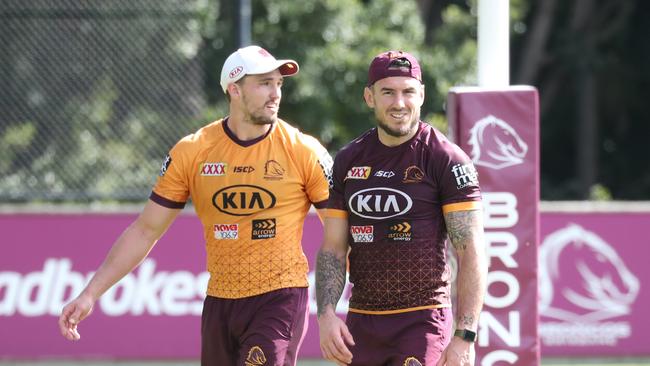
Ikin understands not just that, but why and how, and is better placed across both areas than just about anybody you can think of.
The Broncos roster is out of balance, a roster he called “disgraceful” some weeks back open NRL360.
The Broncos can’t win the premiership every year but they should be contesting for it. They are not doing that now and haven’t done for some seasons.
With all their natural advantages — they still polled second this week among current players asked which club they would like to play for — there is no excuse for the Broncos not to be contesting every season.
Rebuilding years are the excuse of the week and confused.
Teams turn around with coaches who know how to recruit. He often quotes Jack Gibson, who said the best coaches are the best recruiters.
He knows the business of rugby league, enough to know the urgers and the spruikers from the legitimate, which in this game is an art in itself.
He knows that profitable clubs are successful clubs. And that successful clubs are profitable clubs.
And this is what separates him from others; he knows why.
These are the sorts of things that should be said in a proper job reference, if ever I was going to write one.
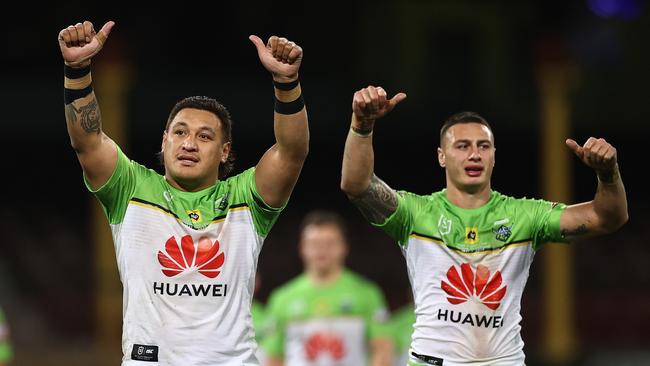
SHORT SHOT
Canberra’s win over the Sydney Roosters on Thursday smashed this year’s premiership wide open.
Many good judges had the Roosters as standout favourites for the title with only Parramatta and Melbourne considered fair chances to beat them for the title.
The same good judges thought the top four might go through the rest of the season unchanged, which might set up a few nice heavyweight bouts at season’s end but would do little to sell the competition between here and then.
With a plethora of stars injured and unavailable, though, the Raiders showed their fight is far from over while also dimming a little of the lustre around the Roosters.
Josh Hodgson’s loss is significant but the Raiders played a considerable part of their season a few years back without Hodgson and are comfortable with getting on without him.
The Roosters are still feeling the effect of the loss of Victor Radley and Sam Verrills.
The Eels have been tremendous so far this season but have had the advantage, not always recognised, of playing every game at home in this resumed season except for one game at Newcastle and, Saturday, at Manly’s Lottoland Stadium.
Melbourne just keep on keeping on, as the Storm do, and will be there again once the winner-takes-all matches are being played.
With the new rules, this season is shaping as a ripper.
Originally published as Paul Kent: Ben Ikin is the best choice for next Brisbane Broncos CEO

